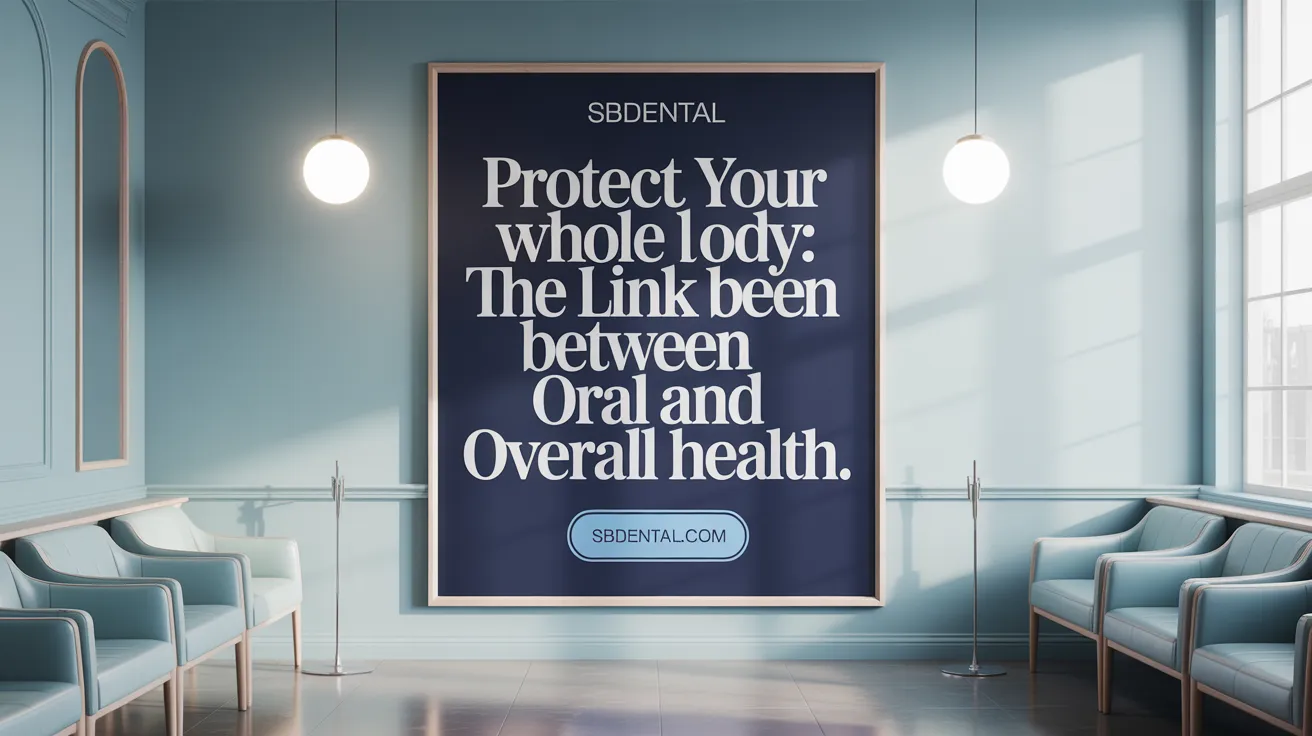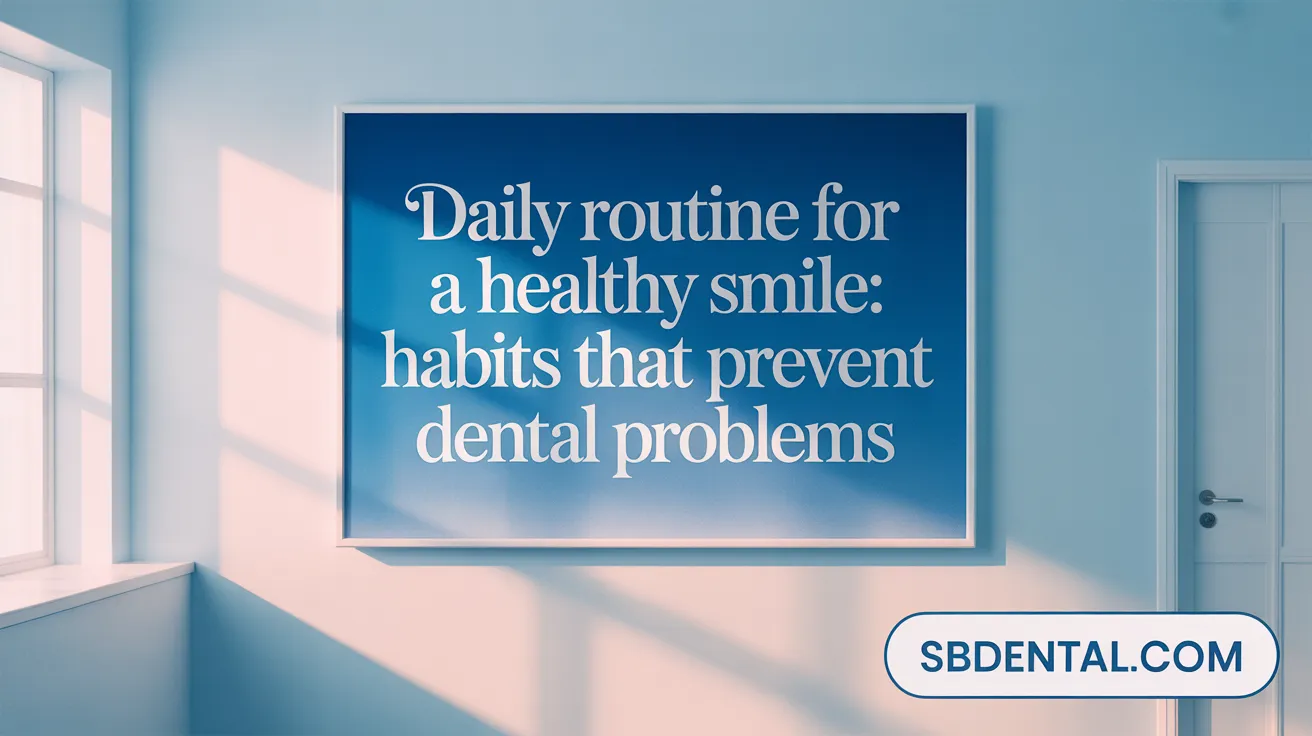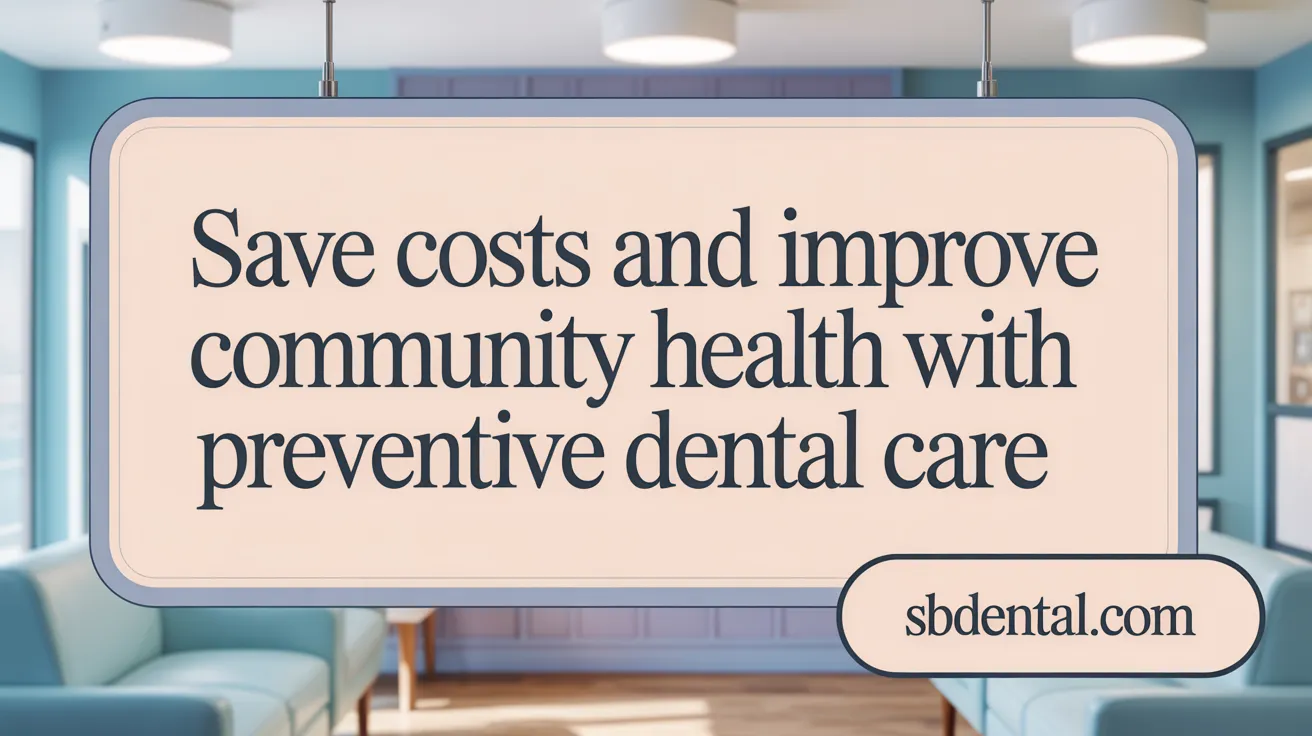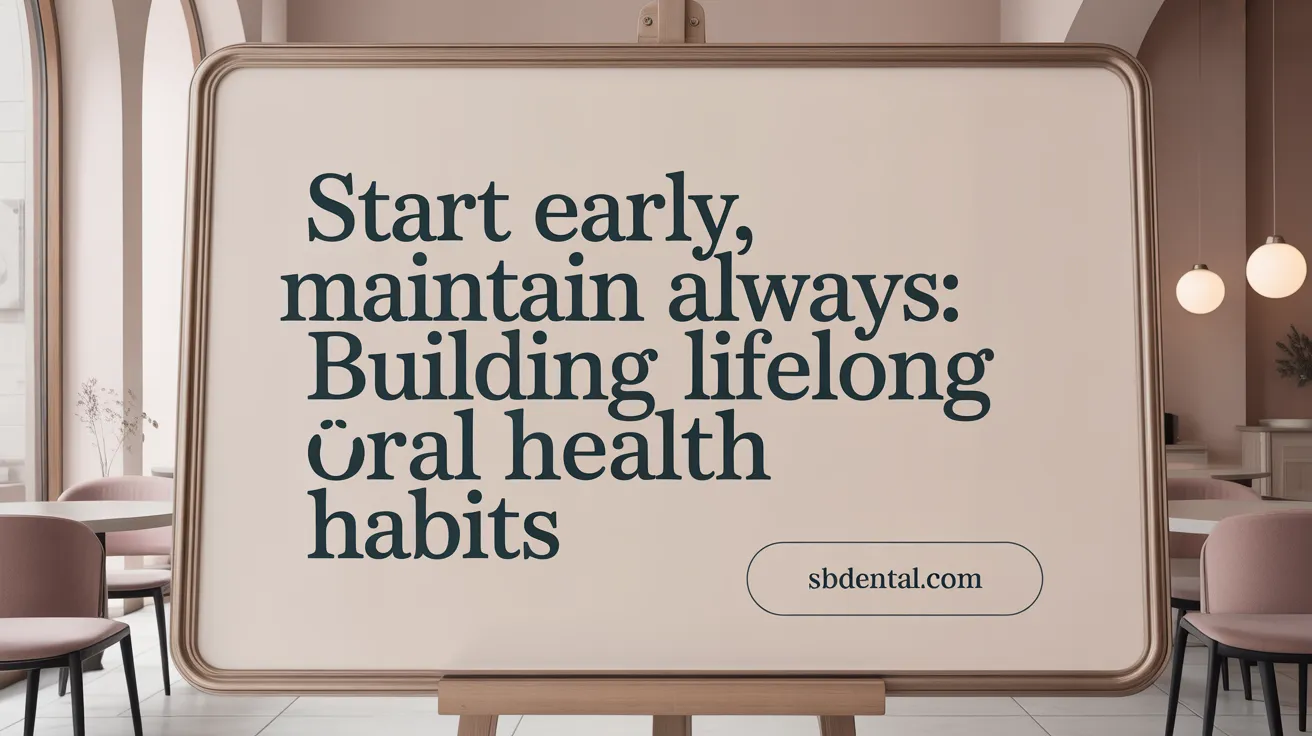Setting the Foundation for Lifelong Oral Wellness
Preventive dental care is much more than just a routine visit to the dentist—it is the cornerstone of maintaining not only a healthy smile but also overall systemic health throughout one’s life. From early childhood to senior years, preventive measures such as regular checkups, professional cleanings, fluoride treatments, and good at-home oral hygiene habits protect against cavities, gum disease, and related systemic conditions like heart disease and diabetes. This article explores the comprehensive benefits of preventive dental care for all ages, emphasizing early intervention, routine maintenance, and its broader impact on lifelong health and well-being.
The Role of Preventive Dental Care Across the Lifespan

How Does Preventive Dental Care Benefit Different Age Groups?
Preventive dental care is essential at every stage of life, tailored to meet the unique oral health needs of different age groups.
Importance of Early Dental Visits for Children
Starting dental visits early helps protect developing teeth and creates a foundation for lifelong healthy habits. Early visits allow dentists to monitor dental development, provide fluoride treatments, and apply dental sealants, significantly reducing the risk of cavities in children.
Preventive Care for Adults to Maintain Oral Health
Adults benefit from routine dental checkups and cleanings that help maintain healthy teeth and gums. Early detection and treatment of dental issues prevent progression to more invasive procedures. Preventive care also supports cosmetic and restorative treatments, enhancing both function and appearance.
Special Considerations for Seniors
Seniors face specific challenges such as gum recession, dry mouth, and the need to monitor existing dental restorations. Regular dental visits are vital to address these concerns and maintain oral function, comfort, and overall quality of life.
Benefits of Routine Dental Checkups and Cleanings
Regular checkups and professional cleanings remove plaque and tartar buildup, preventing cavities and gum disease. They also screen for oral cancer and other health issues early, reducing treatment costs and improving outcomes.
Preventive dental care across all ages promotes overall health by reducing risks linked to heart disease, diabetes, and other systemic conditions. It is a cost-effective strategy to maintain oral health, confidence, and well-being throughout life.
How Preventive Oral Health Practices Safeguard Overall Health

What is the connection between oral health and overall systemic health?
Oral health is closely connected to overall systemic health. Bacteria from gum disease and oral infections can enter the bloodstream, leading to inflammation and increasing risks for cardiovascular diseases such as heart attacks and strokes. These infections also contribute to respiratory illnesses like pneumonia. For more details, see the link between oral health and systemic health.
Impact of gum disease on cardiovascular health
Gum disease, particularly periodontitis inflammation and cardiovascular risk, causes inflammation that affects blood vessels and the heart lining. Individuals with periodontal disease have a two to three times higher risk of cardiovascular events. Preventive dental care benefits reduces inflammation, helping lower this risk.
Oral infections and respiratory diseases
Harmful germs in the mouth can be inhaled into the lungs, causing respiratory infections such as pneumonia. Maintaining Proper oral hygiene techniques and addressing gum disease early helps prevent these serious complications.
Effect of oral health on pregnancy outcomes
Pregnant women with gum disease face higher risks of complications including premature birth and low birth weight. Preventive dental care benefits and proper oral hygiene are vital during pregnancy to safeguard both mother and baby's health.
Role of regular dental visits in early detection of systemic issues
Regular dental checkups enable professionals to detect early signs of diseases not only in the mouth but linked to systemic conditions like diabetes and cardiovascular disease. Biannual visits and preventive care help control infections, reduce inflammation, and contribute to better overall health outcomes.
Preventive oral health practices including regular brushing, flossing, Professional dental cleanings, and timely dental visits are essential. They not only protect your teeth and gums but also reduce the risk of serious systemic health problems, supporting a healthier life.
Essential Daily Habits for Effective Preventive Oral Care

What are the best home oral hygiene practices for preventing dental issues?
Proper brushing is fundamental to oral health. Experts recommend brushing teeth at least twice a day for two minutes each time. Using a soft-bristled toothbrush and fluoride toothpaste strengthens enamel and prevents decay. The toothbrush should be angled at 45 degrees toward the gumline, gently sweeping away plaque and bacteria without damaging gums.
Daily flossing or interdental cleaning is equally important. Floss removes plaque and food particles from between teeth and under the gumline—areas where a toothbrush cannot reach. Alternatives such as interdental brushes or water flossers can be used based on individual needs and dexterity.
The use of fluoride mouthwash or antimicrobial rinses can add another layer of protection by reducing bacteria, helping to prevent gingivitis and bad breath. Choosing alcohol-free mouthwash is recommended to avoid dry mouth.
Diet also plays a critical role. A balanced diet low in sugary and acidic foods helps minimize enamel erosion and reduces cavity risk. Drinking plenty of water supports saliva flow, which naturally protects oral tissues and washes away food debris.
Avoidance of tobacco products and limiting alcohol intake are vital preventive measures. Tobacco increases the risk of gum disease, oral cancers, and discoloration, while excessive alcohol can dry mouth and erode enamel.
Together, these habits form a comprehensive daily routine that supports lifelong oral health and reduces the likelihood of cavities, gum disease, and other dental issues. For more detailed guidance, see Preventive Oral Health Care Benefits, Good Oral Hygiene Practices, and Proper Oral Hygiene Techniques.
Economic and Community Benefits of Preventive Dental Care

How does preventive dental care contribute to cost savings and community health?
Preventive dental care plays a crucial role in reducing extensive and costly dental treatments by catching problems early or preventing them altogether. Research indicates that each dollar invested in preventive services can save between $8 and $50 in future dental care costs. This significant financial advantage helps lower healthcare expenditures for individuals, families, and public programs like Medicaid.
Cost Savings from Preventive Visits
Regular dental checkups and cleanings help avoid expensive procedures such as root canals, crowns, or emergency care visits. For low-income adults with chronic health conditions, preventive care has been associated with reduced treatment expenditures, especially in restorative and periodontic services.
Reduction in Emergency Dental Treatments
Emergency room visits for preventable dental issues like untreated cavities or dental pain have increased, placing a burden on healthcare systems. Preventive care reduces these visits by enabling early intervention, thus decreasing expensive emergency care usage.
Community Programs to Improve Oral Health
Community initiatives, such as school-based dental sealant programs and family-focused education, effectively reduce cavity incidence, particularly among underserved children. These programs contribute to improved oral health equity and reduce disparities in dental disease prevalence.
Insurance Coverage for Preventive Services
Many dental insurance plans include full or nearly full coverage for preventive services such as exams, cleanings, fluoride treatments, and X-rays. This coverage encourages regular dental visits by making preventive care affordable and accessible, which in turn supports improved oral health outcomes over time.
Impact on Health Disparities and Access to Care
Access to preventive dental care is vital for reducing oral health disparities, especially in low-income and minority populations. Addressing barriers such as lack of insurance and high costs allows more people to benefit from early treatment and preventive measures, leading to better community health.
Overall, preventive dental care not only preserves oral health but also offers substantial economic and social benefits by lowering treatment costs, reducing emergency visits, and supporting equitable access through community outreach and insurance coverage.
Building Lifelong Healthy Oral Habits and the Importance of Regular Professional Care

Starting oral care early in childhood
Good oral health begins with early habits. Introducing brushing using a soft-bristled toothbrush and fluoride toothpaste as soon as the first tooth emerges establishes a strong foundation. Making brushing fun and engaging encourages children to maintain these habits long term, aiding in effective plaque removal and the role of dental sealants in cavity prevention.
Maintaining routines through adolescence and adulthood
Teens and adults should continue consistent oral hygiene practices, including brushing twice daily and flossing once daily. These habits help prevent cavities, gum disease, enamel wear, and support overall oral health. A balanced diet low in sugary foods complements hygiene routines. Regular dental visits during this period enable monitoring of dental development, early intervention for issues such as misalignment or decay, and guidance tailored to individual needs.
Tailored oral care for seniors
As we age, oral care needs become more complex. Seniors face challenges like dry mouth, gum recession, and difficulties with manual dexterity. Using softer brushes, staying hydrated, and possibly saliva substitutes can help. Maintaining regular dental appointments is crucial to monitor existing dental work and manage age-related oral concerns, supporting chewing, speaking, and a confident smile.
Regular dental exams and professional cleaning importance
Professional dental check-ups at least twice a year provide thorough examinations, including oral cancer screenings and digital X-rays. Cleanings remove plaque and tartar unreachable by daily brushing, preventing gum disease and cavities. Early detection during visits reduces the need for invasive treatments and supports systemic health by limiting oral inflammation linked to diseases like heart conditions and diabetes (oral health and cardiovascular disease, oral health and diabetes prevention).
Patient education and personalized preventive plans
Dental professionals offer personalized preventive care plans, educating patients on effective brushing, flossing techniques, and dietary choices (proper oral hygiene practices). These plans consider individual risk factors and lifestyle. This patient-centered approach empowers individuals to maintain lifelong oral health (preventive dental care benefits), reducing treatment costs and improving overall well-being.
These strategies combine to support strong oral health habits across all life stages, emphasizing prevention, personalized care, and regular professional support.
Embracing Preventive Dental Care for a Healthier Future
Preventive dental care is an indispensable aspect of maintaining not only oral health but also overall well-being across every stage of life. By embracing regular check-ups, professional cleanings, and consistent at-home hygiene habits, individuals can effectively prevent dental diseases, reduce systemic health risks, and avoid costly treatments. Early intervention starting in childhood, sustained good oral practices, and tailored care for changing needs throughout adulthood and senior years ensure a confident, healthy smile and improved quality of life. Investing in prevention today paves the way for a lifetime of dental and systemic health benefits, underscoring the vital role of preventive dentistry in comprehensive healthcare.
